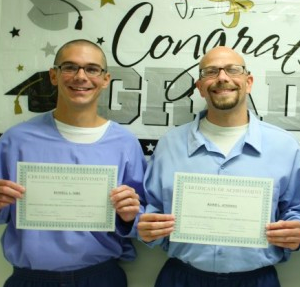A little over a month into the new year, the resounding ring of “new year, new me” is still echoing and Americans are busy keeping up with their resolutions. For Congress, the new year presents the perfect opportunity to breath new life into meaningful legislation that will provide a second chance for some of those who need it most: all incarcerated men and women.
For the last 20 years, federal law has prohibited incarcerated students from accessing Pell grant funding. Federal Pell grants are monetary awards given to students with financial need who are working toward achieving their bachelor’s degree. Eliminating eligibility for incarcerated students has yielded less access to educational opportunities and has decreased workforce preparedness for many formerly incarcerated individuals.
Reinstating Pell grants for eligible incarcerated students would help prepare these individuals to return to society, thereby reducing recidivism rates. Thus, lifting the ban on Pell grants for incarcerated people is critically important to meeting the goals of ensuring public safety and promoting the human dignity of all.
How a person spends their time during a period of incarceration can be a determining factor in how well they will assimilate back into society. This is important because the vast majority of those incarcerated — about 95 percent — will eventually be released. Without adequate educational opportunities, those returning to our communities from a term of incarceration face substantial employment barriers. Indeed, due to a lifetime of comparatively lower wages and high rates of unemployment, about two-thirds of individuals released from prison will be rearrested within three years of their release date.
Increasing access to postsecondary correctional education via Pell grants can improve public safety. When a person leaves prison equipped with an education, they can find a job more quickly, which decreases their likelihood of committing further crimes. A recent report by the Vera Institute of Justice confirms this: The researchers found that reinstating access to Pell grants would generate a “domino effect” whereby formerly incarcerated people would be more likely to seek work after their release and, in turn, be less likely to recidivate.
The benefits of postsecondary correctional education are expansive, and the opportunity for legislative change to increase access to higher education for incarcerated students has been gaining momentum. Last spring, a bipartisan group of senators introduced the Restoring Education and Learning (REAL) Act, which would reinstate Pell grants for all incarcerated people.
The REAL Act has continued to gain bipartisan support and currently has over 40 co-sponsors. The idea of promoting equity in education for incarcerated students has also gained traction in the House: Congressman Bobby Scott (D-Va.) has introduced the College Accountability Act, which also includes a provision to lift the ban on Pell grants for incarcerated students.
While many lawmakers are interested in lifting the Pell grant ban, other issues are pulling time away from the debate on this important reform. Some of these timing issues are obvious while others are less straightforward.
For instance, Sens. Lamar Alexander (R-Tenn.) and Patty Murray (D-Wash.) have been working for months to develop and to present a bipartisan, comprehensive Higher Education Act which, along with its many education-based provisions, might include a clause to reinstate Pell grants.
While it seems that the Higher Education Act conversation could be fruitful in pushing forward the line on reinstating Pell grants, it might lead to harmful complications. This is because some lawmakers believe that “lifers” should be excluded from the benefits of access to higher education, meaning that as negotiations continue for this broader education legislation, the likelihood of restrictions on incarcerated students who would be eligible to apply for Pell grants increases.
But because lifers have such an outsized influence on other prisoners, excluding them from Pell grant eligibility could make others who are incarcerated less inclined to participate in the programs and even worsen the state of prison culture, making both inmates and correctional officers less safe.
This year, lawmakers should set their intentions not only on bringing a fresh set of eyes to the important goal of reinstating Pell grants for all eligible incarcerated students but also on passing legislation that will provide educational opportunities and a fresh start for so many people who are serving time and seeking the chance for a better life.

